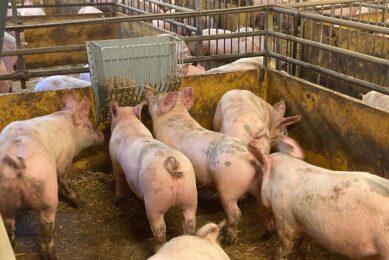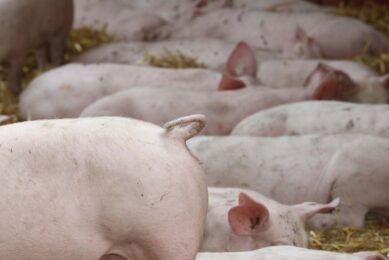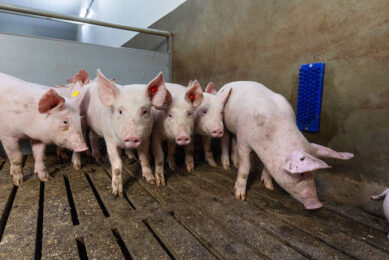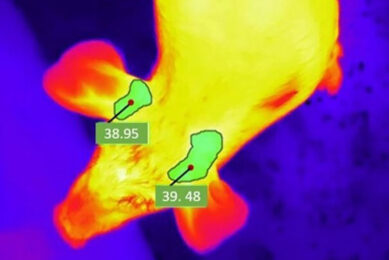Early interactions with sows or humans help piglets perform

Australian researchers hypothesised that piglets that received early life interactions with the sow or humans display decreased responses to stressful events. They recently published about their findings in Frontiers in Animal Science. They evaluated the effects of maternal contact in farrowing crates and positive human contact in early life on the behavioural and physiological stress responses of piglets to routine stressors.
Piglets in intensive production systems are exposed to various stressors which impair their welfare and performance. Maternal contact and positive human interaction early in life can have lifelong impacts on pigs’ welfare and performance.
About the study
The team selected 98 mixed parity sows and their offspring (1,150 piglets) for this experiment. The researchers randomly allocated animals into 4 treatment groups:
- maternal contact;
- no maternal contact;
- human contact;
- no human contact.
They selected 2 piglets per treatment for physiological sampling and 4 piglets per treatment to participate in a behavioural test. The team also assessed piglet behaviour including interaction with the human, biting the human, sucking, active, asleep, and inactive while awake. They collected blood samples from piglets to measure plasma cortisol and IgA concentrations. They recorded piglets’ weight, and individual deaths and removals, as well.
Impact on piglet behaviour
Human contact increased the percentage of piglets interacting with the human or biting the human and decreased the percentage of piglets active, asleep, inactive while awake and sucking. In addition, piglets with human contact were more active and had more vocalisations. Applying maternal contact increased the percentage of time piglet spend interacting with the human. Piglets with on maternal contact displayed less nose-to-nose contact with the sow and an increase in the incidence of bar biting. Piglets with no human contact spent more time initiating nose-to-nose contact with the sow and less social contact with pen mates. In addition, piglets with no human contact displayed more bar biting behaviour.
Impact on plasma cortisol concentration
Piglets with no maternal contact showed an increase in plasma cortisol concentration. However, applying the human contact decreased the IgA concentration in piglets.
Impact on performance
No maternal contact increased the total number of pigs not weaned either due to death, removal, or failed weight limit. In addition, piglets with no maternal contact had reduced weaning weights.
The authors concluded that maternal and positive human contacts reduce stress and improve piglets’ performance.











